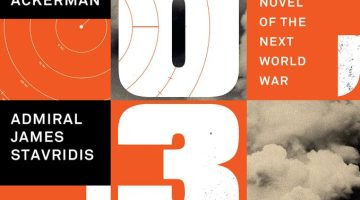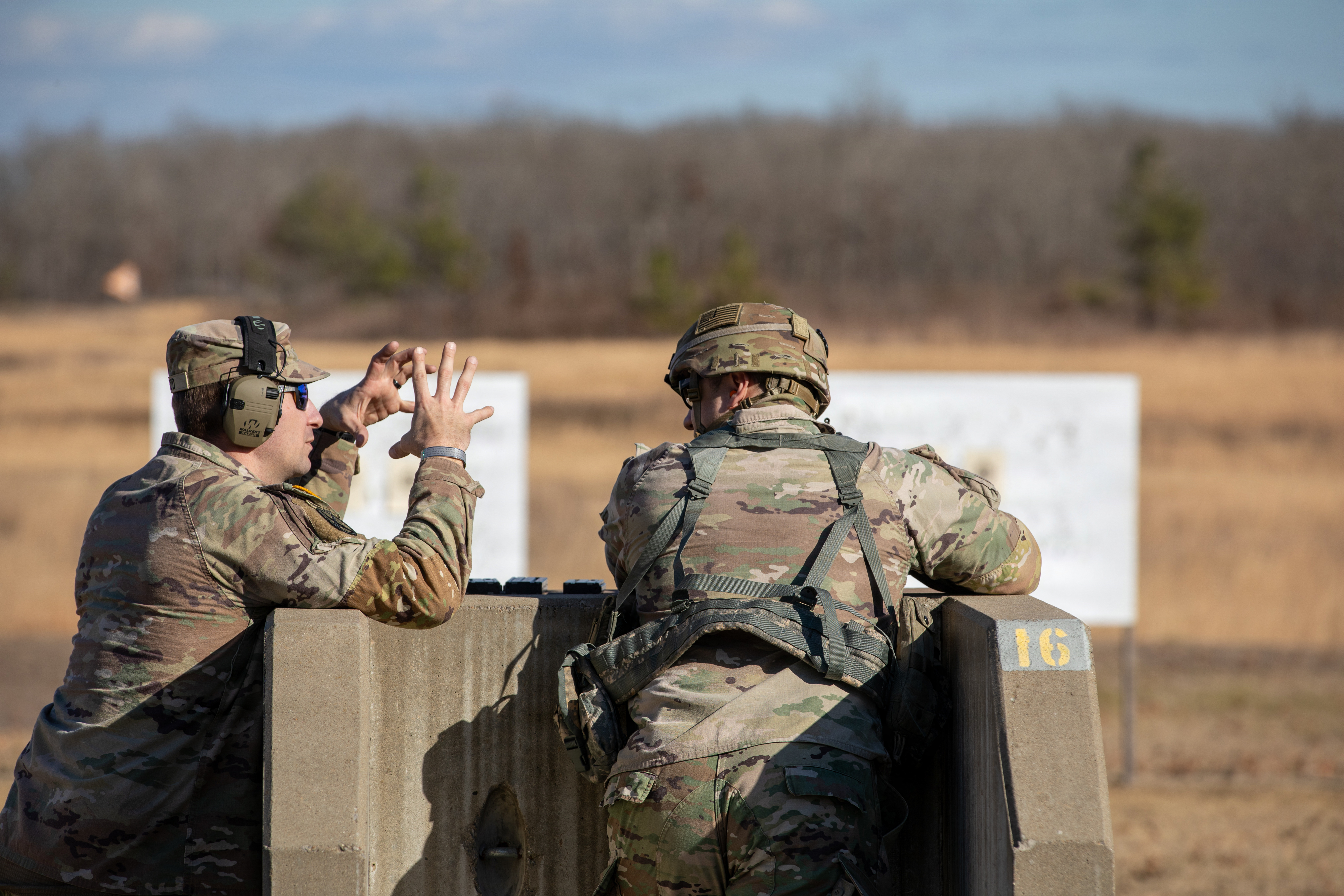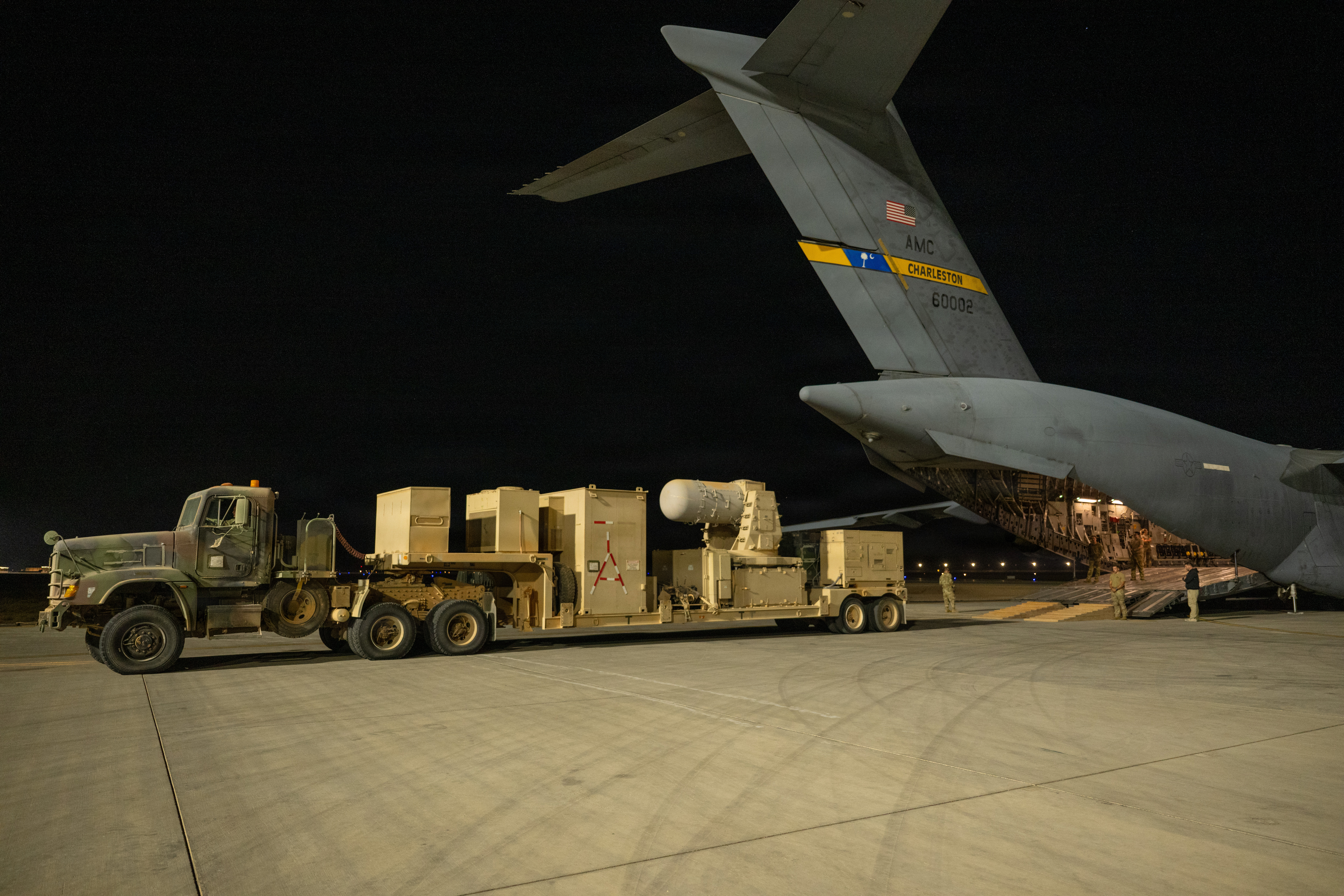Book Review of 2034: A Novel of the Next World War

Elliot Ackerman and Admiral Stavridis depart from most military fiction novels with their recently released novel titled 2034: A Novel of the Next World War. Instead of telling a story of glorified heroes and patriotic victories, they provide a creative depiction of what America’s next war may look like by overlapping current geopolitical tensions with emerging changes in the character of war.
Ackerman and Stavridis’ use of fiction provides unique benefits that readers cannot find by solely reading nonfiction. By looking into the near future of military conflict, the authors offer a lens to look back upon today – helping their readers make sense of the trends and challenges society currently faces. Fiction also forces readers to contemplate the unknown and consider options that are not commonplace within today’s norms. Lastly, fiction amplifies the benefits of nonfiction, personal, and professional development reading by creating a forum to test theories and concepts within.
2034 demonstrates the differences between the character and the nature of war. While the nature of war is largely unchanging, described by Clausewitz as, “a mere continuation of political discourse with other means,” the character of war has changed significantly. Since the start of the 21st century, warfare has been altered by the expansion of new capabilities, such as cyber and information operations, that have often been described as hybrid, asymmetric, or gray zone warfare. This change in the character of war requires refining how military leaders think about not only the strategic level of war, but about the operational and tactical levels. 2034 provides a valuable lens for junior officers and non-commissioned officers to think about, as they could be the operational level leaders in America’s next international conflict.
Overview (minor spoilers)
2034 is a thrilling read that shows how possible a World War III could be in the near future. The story is told through the eyes of policy makers and operational leaders in the United States, China, Iran, and India. 2034 opens in the South China Sea and over the Strait of Hormuz as the People’s Liberation Army employs new cyber capabilities that result in the destruction of American destroyers and the seizing of an F-35 out of the sky. The United States and China proceed to alternate escalatory retaliations that include nuclear strikes. This disruption leads to Russia, Iran, and even India exploiting the changing world order while the United States is unable to secure the support of its traditional allies.
While clearly a work of fiction, 2034 depicts a plausible result of today’s realities. It is built upon escalating geopolitical tensions that have gone largely unnoticed by the general public. It demonstrates the most significant potential weakness of the United States. Not any economic or military capabilities, but failings of America’s foundational values and political systems. As told in 2034, America is stiffened from “decades of partisan division” and unable to rally allies to its defense due to losing the moral imperative it has possessed over the last 75 years.
So, what lessons does 2034 provide to tomorrow’s operational leaders with its frightening speculation of tomorrow’s war?
Know Your Adversaries
Ackerman and ADM Stavridis commonly quote Sun Tzu to include: If you know the enemy and know yourself, you need not fear the result of a hundred battles. If you know yourself but not the enemy, for every victory gained you will also suffer a defeat. If you know neither the enemy nor yourself, you will succumb in every battle. In 2034, Chinese Admiral Lin Bao is an embodiment of knowing your enemy. The story starts with Admiral Bao serving as the Chinese defense attaché in D.C. and owes his position and success to his understanding of the United States. He is not only fluent in English, but a graduate of Harvard Kennedy School and the U.S. Naval War College. Throughout the story, Lin Bao uses his understanding of U.S. military capabilities and politics to anticipate and counteract each U.S. move. Lin Bao provides a contrast to a majority of U.S. military leaders.
The U.S. military has focused extensively on knowing itself. Every training exercise or combat patrol is always followed by an After-Action Review. The Combat Training Centers are designed to provide instant and continuous feedback and the Army has even developed a Center for Army Lessons Learned that categorizes lessons from every corner of Army operations and training.
However, the U.S. military has not equally emphasized knowing its near-peer competitors. All leaders should maintain a baseline understanding of the political structures, military capabilities, and cultures of potential aggressors. Language and cultural training cannot be limited to only Special Operations Forces but needs to be extended across the conventional force. Unit intelligence officers should become subject matter experts that can provide Leader Professional Development in garrison environments.
Have the Range to Conduct Operations in High-Tech and Low-Tech Environments
In 2034, the U.S. is steps behind China’s cyber capabilities. The story opens with an F-35 testing new stealth capabilities over Iranian airspace. However, control of the aircraft is quickly taken by the Iranians, with help from the Chinese, and landed at an Iranian base. In the South China Sea, U.S. naval forces are unable to detect Chinese movement and lose all communication capabilities at the timing of the Chinese choice. The only way the U.S. is able to counter this is by retrofitting F/A-18 Hornets and vessels with VHF, UHF, and HF radios and using manual mechanisms for navigation and weapons deployment.
In today’s military, there is a common view of a false dichotomy between emphasizing or minimalizing technology. The reality is that junior leaders must ensure units are fully capable of using either. It is critical that Soldiers, Airmen, Sailors, and Marines seek to continually reform and improve their use of technology, such as the Integrated Tactical Network which enables every Soldier to be a sensor on the battlefield. This allows units to operate in more decentralized and rapid operational environments and limits adversaries’ abilities to degrade our systems. However, equal focus must go into the basics of low-technology communications and navigation that is not dependent on technology that competitors can defeat. Over the last decade, adversaries have shown the ability to neutralize our technological advantage on the battlefield. It is certain that this will occur on a larger scale in the instance of a conflict with a near-peer competitor.
Keep the Force United
Ackerman and ADM Stavridis close 2034 with one of Abraham Lincoln’s many famous quotes: All the armies of Europe, Asia, and Africa combined, with all the treasure of the earth (our own accepted) in their military chest, with a Buonaparte for a commander, could not by force take a drink from the Ohio or make a track on the Blue Ridge in a trial of a thousand years…If destruction be our lot we must ourselves be its author and finisher. As a nation of freemen we must live through all time or die by suicide. Ackerman and ADM Stavridis tell a tale of American division undermining its values of democracy and liberty. It is a story that unfortunately is a true possibility in today’s age of partisanship and disinformation.
Military leaders have a responsibility to articulate American values and ensure service member actions support these values. Professional development needs to include training on civil-military norms and the role of the military in society. While it may be acceptable for individual service members to have private, political views, members of the military must remain nonpartisan. This training should include education on the meaning of military oaths and allegiance to the Constitution instead of a person or party. This training cannot only occur in military schoolhouses but amongst the operational force as part of regular Leader Professional Development. It is important to remember that the threats to the American way of life are not coming from other Americans but from external actors seeking to divide American society and institutions.
———
Captain Andrew Webster is an active duty infantry officer. He is a 2012 graduate of the United States Military Academy and tweets at @AndrewWeb11.
The views expressed are those of the author and do not reflect the official position of the United States Military Academy, Department of the Army, or Department of Defense.



